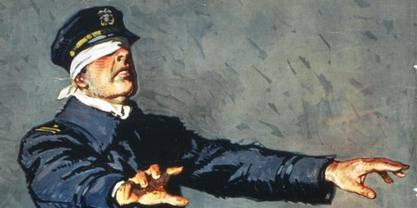
Details on Doherty’s early Congressional speculation are important to consider.
Rhode Islanders won’t be surprised that former State Police Colonel and gubernatorial candidate Brendan Doherty is considering a run for Congress now that incumbent Representative James Langevin has announced the opening. Here’s the interesting wrinkle, though:
This time around, Doherty is considering entering the Democratic primary for the 2nd District, which covers western Rhode Island. Langevin, a Democrat, first won the seat in 2000.
The record shows Doherty became a non-Republican in 2014 and then a Democrat in 2015, so this isn’t an opportunistic choice, and his switch wasn’t a response to Donald Trump. Still, whatever else it is, Doherty’s party decision right now is a political calculation, and it’s an interesting one.
Whatever his party, the expectation would be that he’d be running in the conservative lane (okay, okay… “moderate”). In the primary, he’ll surely be facing off against fellow Democrats far to his Left. Even if the machine clears his path among those who play along, the Matt Brown wing will seek to get some mileage from a run, which would bruise Doherty for the general election. Doherty will be running as a former cop in a party still in the grips of a “defund the police ideological” hot-flash.
Then, if he takes the primary, he’ll have to face up against a Republican, perhaps as credible as Allan Fung — who, in Fung’s case, may have more inroads with progressives than expected thanks to his General Assembly wife’s radicalism. Of course, rifts in the state GOP may cost Fung some of his party’s base, giving Doherty establishment Democrats, Ken Block’s old Moderates, and a big chunk of the GOP willing to switch parties for one box on the ballot in the hopes of having a Manchin-like representative in a Congress that’s likely to switch to Republican control.
However much this speculation may prove accurate, the complexities don’t feel healthy. Rhode Island is struggling with a mixture of the reality that Democrats all but sweep the elections and the difficulty of knowing where one belongs based on beliefs. No non-progressive voter can reliably use party identification to know reasonably well whether he or she is electing somebody who’ll work to move policies toward his or her preferred outcome.
Progressives are the exception because vanishingly few of their candidates would dare accept an “R,” and their ideology has such strength in the Democrat Party that empowering it serves their interests at least a little. But moderate-to-conservative Democrats can’t be sure that a straight-party vote won’t elect radicals, and Republicans might miss a Democrat-in-name-only opportunity by sticking with a Republican who (let’s remember) probably had no competition and therefore minimal screening to get on the ballot.
Whether or not Doherty’s choice of party for this race works out for him, Rhode Island needs to find a way back to a condition in which a candidate like him would be a Republican.
